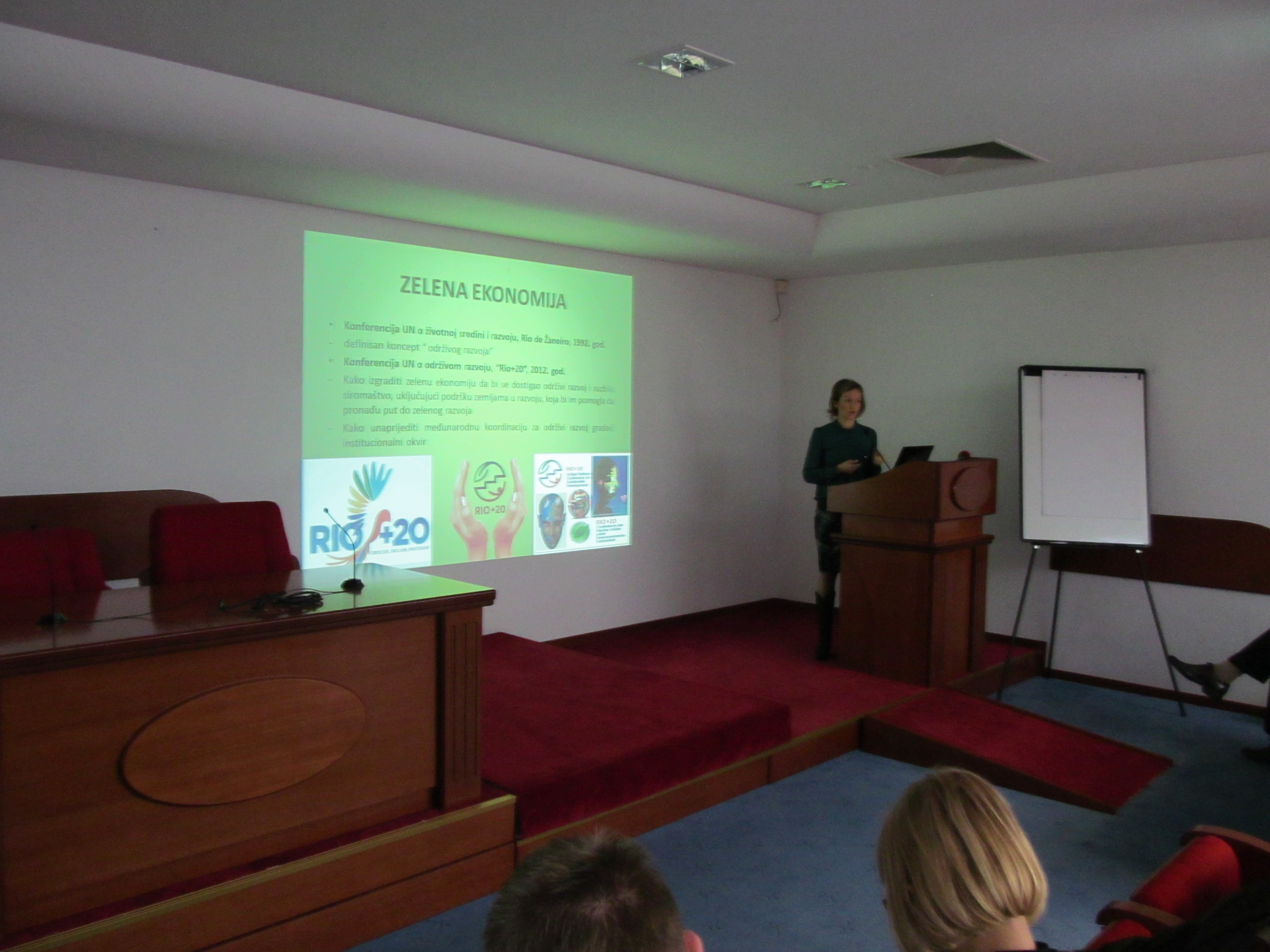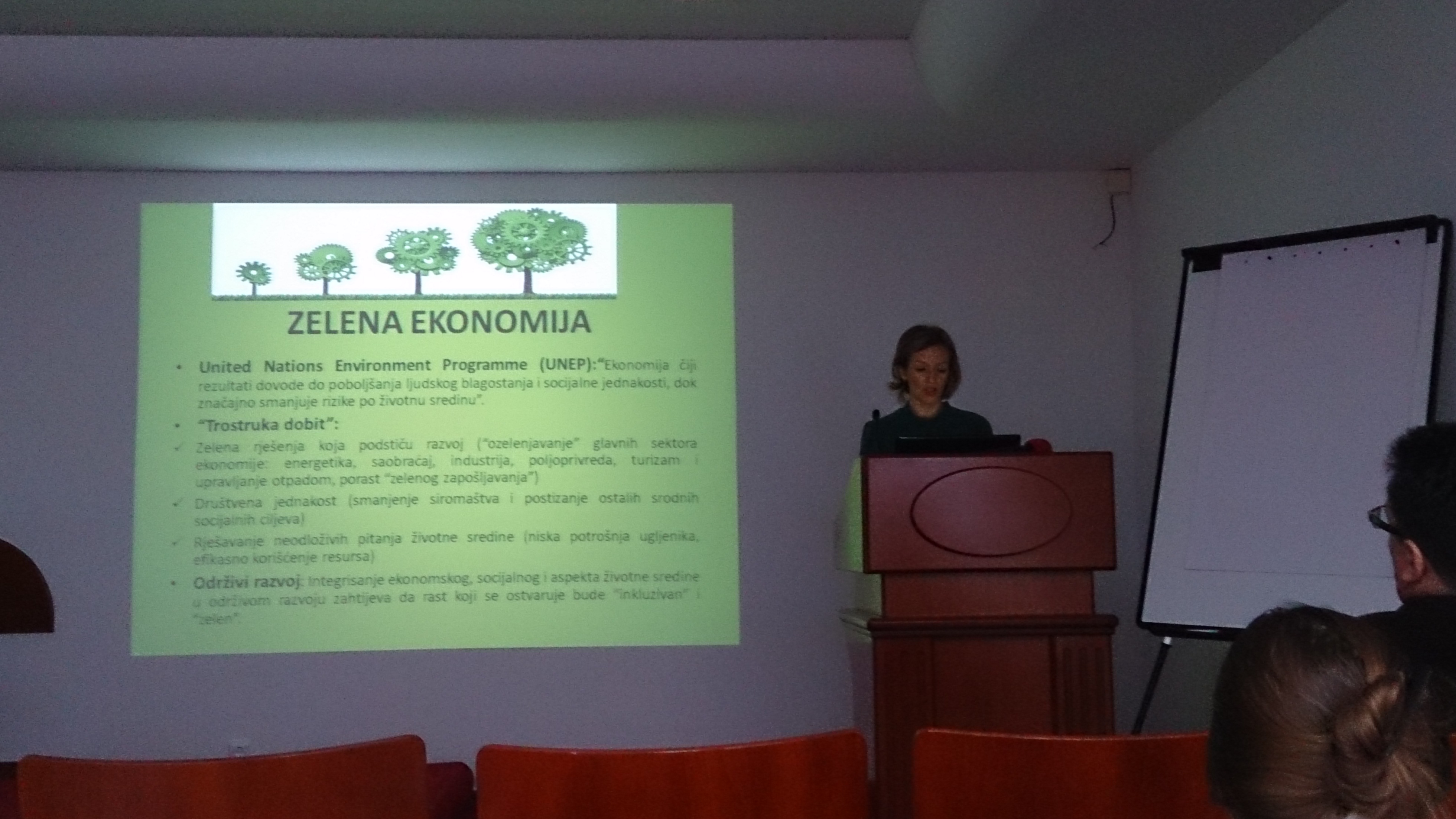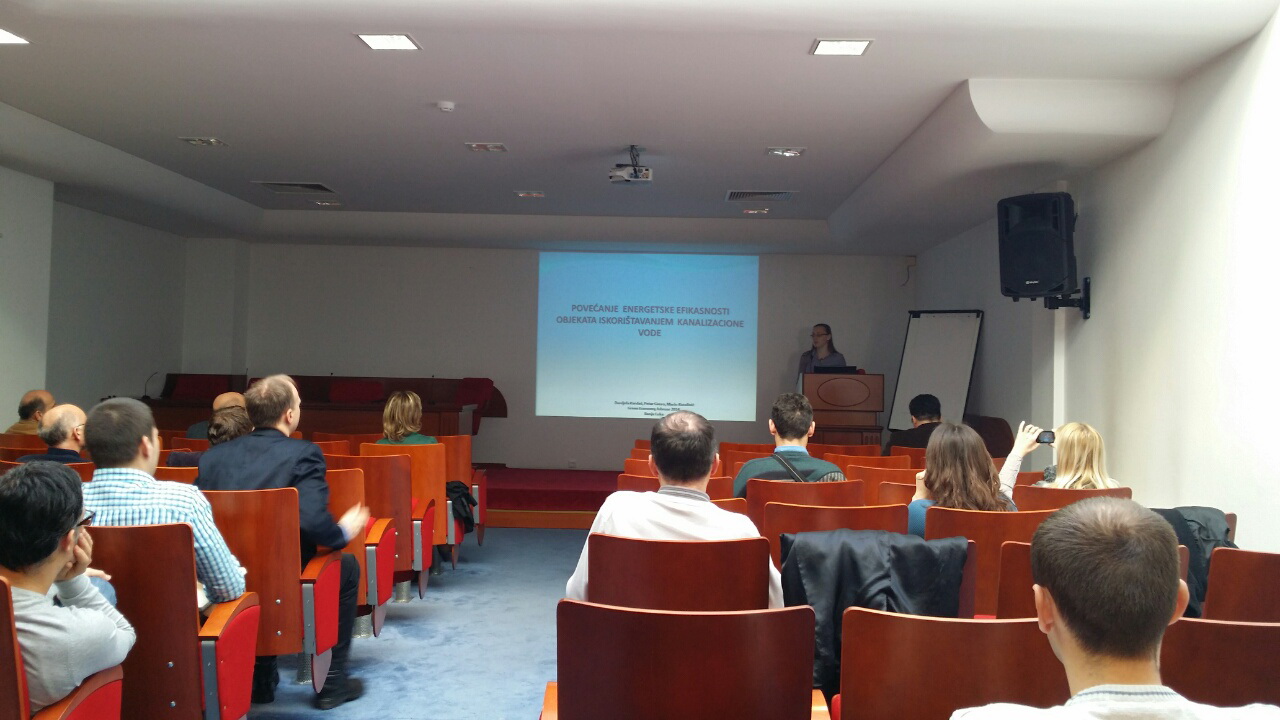 „Green Economy“, Banja Luka, 13.02.2014. godine
„Green Economy“, Banja Luka, 13.02.2014. godine
Following the world trends and interests, JICA Alumni organized a workshop titled “Green economy”. The workshop was held on 13 February 2014 in Banja Luka.
Green economy is a model based on the concept of sustainable development that is integrally leaned on renewable energy, green buildings, sustainable transportation, water, waste and soil management, in order to increase sustainability, profitability, competitiveness and employment. With this workshop, we wanted to investigate how to integrate elements of green economy into the tourism sector, accentuating use of renewable energy and correct use of sewage. There is an evident need for better and more solid linking of scientific and research sector to real sector. In other words, it is necessary to bring into practice technical and technology systems which contribute to the primary goal of the green economy: well-being of people, social equality and mitigation of negative impacts on environment, and this was placed as focus of this workshop. The lectures, Tatjana Jandric, prof. Petar Gvero PhD, Danijela Kardas, Jovan Dukuc, tackled these issues in a very interesting way, and the participants who came from different levels and organizations (NGO, public administration sector, private sector) agreed that future cooperation on various level should be initiated in this regard.
Special attention was given to introduction of two systems: solar air conditioning and increase of energy efficacy of facilities by using waste water, both applied in tourism industry.
Solar potential is significant, especially in the part of the country near the Adriatic Sea, although it is only partially exploited. The poor economic situation and inadequate regulations pose hindrance to more serious investment in this field.
Introduction of technologies that enable cooling in summer, the period when it is the mostly needed, opens possibilities to significant energy save and favorable impacts to the environment.
By using solar energy in Bosnia and Herzegovina, according to the estimation of Adria Cold project, it is possible to achieve up to 30% energy save, especially in public sector, tourism industry or hospitality, agriculture and service industry. When it comes to hospitality, solar energy can be used for lighting, room and other facilities air conditioning, water heating, coolers and chillers and in transportation industry.
Also, sewage can also serve as an interesting source for heating in spaces where people either reside or move through, such as hospitals, dormitories, military barracks, hotels, etc. Sewage is a stable source of energy, and its temperature change throughout a year is very low. More than 70% energy coming from sewage is waste water (which is of course free of charge). The rest (30%) is transformed electric power. The key thing in this process is a low environmental impact.
Energy from waste waters is mainly used for meeting constant energy demands, whereas conventional systems are used for covering critical points in energy consumption. This significant energy potential can be exploited by use of heating pump.
After exceptionally interesting lectures and active discussion which arouse after, a clear need to direct the economy to “green tracks” using the concept of sustainability and innovative technology solutions is identified.
This workshop was organized by Dunja Pejic and Petar Gvero, members of the Management Board of JICA Alumni in BiH.
 WORKSHOP ON CLIMATE CHANGES AND SUSTAINABLE DEVELOPMENT (22 December, 2009)
WORKSHOP ON CLIMATE CHANGES AND SUSTAINABLE DEVELOPMENT (22 December, 2009)
JICA ALUMNI of BiH, held a workshop on climate changes and sustainable development where problems and issues related to climate changes were discussed, as well as possibilities that could be used through sustainable development. Climate changes are global problem which doesn’t recognize borders and it refers to every sector and field of human activities. These changes will immensely affect many fields of human life and development and if the process of adaptation does not get implemented in a proper manner, a significant portion of these fields will cease to be economically sustainable. This was the reason for JICA Alumni to gather experts from various fields, expecting from them to help through discussion and conclusions in channeling activities that would help BiH economy to adapt and to see climate changes as a chance for development. One of these experts, Aleksandar Knezevic, the REIC President for SE Europe, has emphasized that forecasts of world experts show increase of gases in future, as well impossibility to control these tendencies. The emission of hazardous gases in 2009 compared to 1960 has been increased for 40%, said Knezevic, and added that according to the agreement from Copenhagen, this emission has to be reduced for 80% until 2050, which is „practically impossible“. Referring to the biggest climate challenges in BiH, Knezevic underlined huge oscillations in temperatures in short period of time, then more rain precipitation compared to snow, as well as increased number of tropical days with temperature above 30 degrees of Celsius. Expert for air quality in Hydro meteorological Institute, Martin Tais, said that according to the results of greenhouse gases emission in BiH, for the period from 1981 to 2001, the overall carbon dioxide (CO2) emission was 34.043.000. According to him, the highest emission was during 90's, in the time of industrial peak. Tais also stressed that the biggest producer of CO2 is energy, then industry, agriculture, industrial processes and waste. He also stressed that 77% of energy in BiH is produced from solid fuels, which is the main reason for energy domination in the hazardous gas emission. BiH has the least emission per capita, as compared to other European countries, but he reminded that there is no a comprehensive monitoring system and data collection about environment. As mentioned on the workshop, Bosnia and Herzegovina, considering its area, insignificantly participates in global emission of hazardous gases. However, as a signatory of Kyoto Agreement, she is obliged to participate in combat against climate changes.


 Eng
Eng


